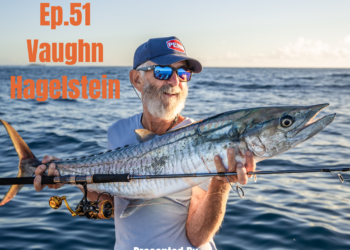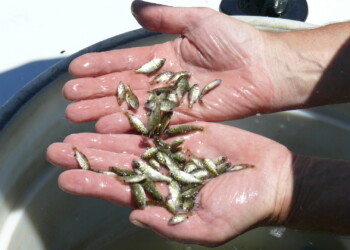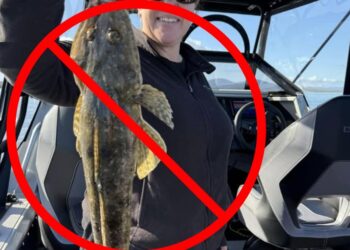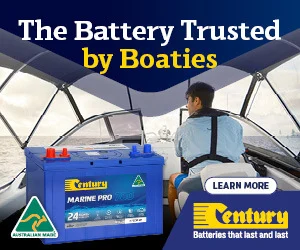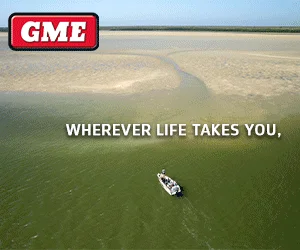IN the lead up to this Saturday’s federal election Fishing World has put together a very simple election guide that we’ve sent out to all the major parties. We’ve deliberately kept it simple because we want everyone to see where each party stands on the major issues. Here are the responses from the Coalition, Labor, Greens, Liberal Democrats and Shooters & Fishers.
Supertrawler – Will you continue to allow the supertrawler to operate in Australian waters?
Coalition: The Coalition is committed to managing Australia’s fisheries to ensure that both commercial and recreational fishers can co-exist and share the resource. We are committed to a balanced and science-based approach to all decisions regarding access to Commonwealth fisheries. The Turnbull Government is not going to take decisions that make recreational fishing less enjoyable, which means not threatening the stock of fish.
In April 2015, the Coalition Government banned all Supertrawlers (boats over 130 metres) from entering Australian waters. The Australian Fisheries Management Authority (AFMA) is the independent regulator of Commonwealth fisheries and sets the total allowable catch for the small pelagic fishery.
Conservative allowable catches for each fish stock are set to allow that commercial species in the small pelagic fishery to be replenished. This ensures that gamefish continue to have a readily available food source, which is important for recreational fishers who share the fishery with commercial vessels. Research and advice from the CSIRO, AFMA, and the Institute of Marine and Antarctic Studies/University of Tasmania, all help ensure that the small pelagic fishery is being sustainably managed.
Any mid-water trawler operating in the small pelagic fishery must have a vessel management plan approved by AFMA before it can start fishing. AFMA monitors the location of vessels using a global positioning system and uses on board cameras to watch fishing activity.
The independent assessment of the health of the small pelagic fishery and the strength of the regulations applying to all who fish in the small pelagic fishery indicates that the balance is right at this time. The Turnbull Government will not threaten the sustainability of the fishery which contributes much to the economy through export earnings, jobs in commercial fishing and aquaculture, recreational fishing and tourism.
Labor: When Labor was last in government we stopped the supertrawlers and last year in the Senate we attempted again to extend that ban in the Parliament. The Coalition parties voted against Labor and we were unable to stop the Geelong Star. Labor will continue to take up the fight and we are not convinced that big trawlers can operate without an impact on the pelagic fishery. The science is still unclear, Labor’s view is that until we are confident that super trawlers can operate without any significant impact on our fisheries then will continue to oppose them.
Greens: No-one has fought harder than the Greens in the federal parliament to stop the supertrawler. We moved a motion to disallow night fishing by the supertrawler. This would have made the MV Geelong Star’s operations unviable, but it was defeated by the Liberal/Nationals and Xenophon. The Greens co-sponsored a senate inquiry into the supertrawler. The Greens are also pursuing freedom of information requests from the Australian Fisheries Management Authority (AFMA) regarding bycatch.
Liberal Democrats: We urge fishers to look at the evidence and not be fooled by Greens scare campaigns. While there is a quota, it makes no difference if fish are caught from one large boat or ten small ones. Extensive scientific studies have revealed supertrawlers cause no local depletion and no noticeable effects on the wider ecosystem, provided the overall take is subject to properly determined sustainability constraints.
Shooters & Fishers: We will stop the super-trawler, period. The Shooters, Fishers and Farmers Party has been very outspoken on this issue, and if elected, we will respond immediately. The super-trawler is a threat to Australian fish stocks and to small business jobs. Not only is it foreign-owned and is sending profits from our resources overseas, but it also uses a highly destructive method of fishing. Since it processes its catch on-water, many small operators will be put out of work – putting local jobs at risk. We support the Australian fishing industry, and the viability of fish stocks for recreational fishers.
Federal Marine Park plan – Are you going to lock recreational fishers out of huge areas of water without any scientific justification, like what has been proposed for the Coral Sea and other places with the Commonwealth Marine Parks Network?
Coalition: A re-elected Coalition Government will prepare new management plans for the South-West, North-West, North and Temperate East Networks and the Coral Sea Commonwealth Marine Reserve, within the next 12 months. This will involve two opportunities for public comments. The new plans will be based on the recommendations of a major independent review that will consult the community and consider the balance between environment, social and economic interests.
Until new management plans come into effect, there are no ‘on the water’ changes for marine reserves, and the protections that were in place before November 2012 still apply.
A re-elected Turnbull Government remains committed to responding to the independent review and to implementing a network of marine reserves that all users can enjoy. As always, we will keep up our close engagement with recreational fishers.
We have undertaken this process in line with our commitment at the September 2013 election. We will work with the community, unlike Labor who failed to adequately consult before it locked out recreational fishers from these areas. Unlike the Coalition, the Australian Labor Party has committed to reinstating their marine park boundaries of 2012. This would mean a return to greater lock outs by Labor, which will go even further if they team up with the Greens, as is expected.
Labor: Labor has a strong record of protecting Australia’s environment and that extends to our oceans. The Whitlam Government established the nation’s first Marine Park to protect the Great Barrier Reef.
The former Labor Government established Australia’s Marine Park Network: the largest network of marine protected areas anywhere in the world at the time. Unfortunately, the Liberals set aside the management plans for the Commonwealth Marine Parks so that they could conduct a review — a review Labor had already done. Labor has already announced that we will re-instate the Marine Park Network.
Labor’s network of Marine Parks will help to ensure that Australia’s diverse marine environment and the life it supports remain healthy, productive and resilient for future generations.
Greens: The creation of marine parks is supported by science. Fish stocks the world over are in decline, including in Commonwealth waters. The reestablishment of marine parks will help ensure the health of marine ecosystems and increase fish stocks. In turn, this will improve the long-term viability of recreational fishing.
Liberal Democrats: Absolutely not. The Liberal Democrats vehemently oppose locking people out of public lands, and preventing people from fishing in waters that should be accessible to all of us.
Shooters & Fishers: Absolutely not, we oppose the expansion of marine parks. In fact, the Shooters, Fishers and Farmers Party will claw back access to marine estate already lost to unjustified and unwarranted recreational fishing ‘lock-outs’. Fishers, like hunters and farmers, have become increasing victims and scapegoats of green bureaucracy gone mad. True facts and statistics have been repeatedly, or worse, misrepresented by green groups in their relentless assault on recreational fishing.
In 2010, we introduced the Marine Parks Amendment (Moratorium) Bill in New South Wales. This secured a five year moratorium on all marine parks in New South Wales and protected recreational fishing rights. Our representatives are working on similar legislation now to ensure fishing rights remain. The growth of marine parks and the extension of sanctuary zones without proper scientific study are a short-sighted policy that we strongly oppose.
Recreational fishing body funding – What are you going to do to redress the huge void in resources and lobbying power between recreational fishing and that of competing stakeholders such as commercial fishers and environmental groups. How much money are you going to contribute towards a national recreational fishing body so that our funding is representative of both our numbers (over 5 million) and our contribution to the economy (approximately $10 billion).
Coalition: The Coalition took an important step in 2013 by committing $550,000 over four years to support the Australian Recreational Fishing Foundation (ARFF) to improve the capacity of the recreational fishing sector to constructively engage with Government on national policy issues, as well as better communicate with fishers and the community and promote sustainable fishing methods through a revised National Recreational Fishing Code of Practice.
A re-elected Turnbull Coalition will amend the Fisheries Management Act 1991 to ensure AFMA takes into account the interests of users of fisheries– commercial, recreational and Indigenous fishers.
The Coalition also proposes amending legislation to increase the size of a number of Management Advisory Committees (MACs) for specific fisheries to enable the appointment of a recreational fishing sector representative, and move to have recreational fishing sector representatives appointed to Resource Assessment Groups.
We are committed to a balanced and science-based approach to all decisions regarding access to Commonwealth fisheries.
Labor: Labor will provide $110,000 to establish the Council, which will meet twice a year with the Minister for Agriculture, Fisheries & Forestry.
The Council will tackle issues like land and water use, conservation, access to national marine parks and other issues of concern to recreational fishers. It will allow the Federal Government to fish for their views and trawl for new ideas about how to better manage Australia’s precious natural resources.
Greens: Lobby groups for special interest groups should be self-funded. However, we support the retention of tax-deducibility status for donations to such groups.
Liberal Democrats: The Liberal Democrats believe the Government spends far too much, and public funds should not be wasted on lobby groups of any kind. The biggest problem for fishers is the creation of excessive rules and regulation, and this will not be served by more bureaucracy.
However recreational fishers will have no better friend in Canberra than the Liberal Democrats. We are also seeking to achieve representation in state parliaments, where many of the laws adversely affecting recreational fishers are made.
Shooters & Fishers: The Shooters, Fishers and Farmers Party has demonstrated time and time again, that we have been able to successfully campaign for increases in recreational fishing funding at the state level. We fully support a balanced and equitable funding arrangement for recreational fishing that acknowledges the economic, social and cultural significance of this crucial industry. Other parties say they do, but clearly have not acted accordingly. We will campaign the government for increases to recreational fishing bodies consummate with their economic input.
Recreational fishing research funding – What money will you commit to research that benefits recreational fishers? For example but not limited to…
-
Tagging programs (currently done voluntarily by recreational fishers)
-
An independent economic and social study into the benefits of recreational fishing as a whole, nationwide.
Coalition: The Coalition strongly supports rural research and development and the important work undertaken on behalf of the fisheries industries by the Fisheries Research and Development Corporation (FRDC). Commonwealth matching funding for the FRDC has increased under the Coalition, from $18.7 million in 2014-15 to an estimated $20.3 million in 2016-17.
The Coalition has delivered on our 2013 commitment to invest $100 million in the Rural Research and Development for Profit programme, with $78 million in projects approved so far. In the first two rounds of the Rural R&D for Profit programme, the FRDC was successful in receiving a $3.2 million grant to support the fishing sector. The $4 billion Agricultural Competitiveness White Paper invested a further $100 million to extend the Rural R&D for Profit programme to 2022.
Labor: Labor will contribute $31.7 million to drive deeper collaboration between the Australian Institute of Marine Science and James Cook University, with these funds to go towards the establishment of JCU’s $100 million Australian Tropical Marine and Aquaculture Centre.
Greens: We support AFMA and FRDC directing existing funding towards research undertaken by and that informs recreational fishing.
Liberal Democrats: The Liberal Democrats do not believe that recreational fishers need to push for taxpayer-funded research in order to avoid restrictions. The main research requirement is to determine sustainable catch limits, so that fisheries remain viable. We recognise that this is a shared responsibility with state governments, and that it is difficult to fund on a user-pays basis without imposing substantial regulation (eg licences etc). Notwithstanding our commitment to substantially reduced spending, a contribution by the Commonwealth to this would not be opposed.
Shooters & Fishers: At a State level, the Shooters, Fishers and Farmers Party has already commissioned research into the benefits of recreational fishing. We also chaired the largest ever Upper House inquiry into recreational fishing in New South Wales. Our research has shown that recreational fishing employs, directly and indirectly, over 14,000 people in New South Wales alone, and injects billions of dollars into our economy. Further, our research has indicated that recreational fishers are at the forefront of environmental and biodiversity conservation, with fishers being perfectly positioned to identify issues and manage our marine estate.
We consistently advocate for recreational fishing rights in the face of increasing calls to restrict access to marine areas and brand fishers as the problem, rather than the solution to issues in marine ecosystems. We will continue to support and expand current research programs supporting recreational fishing.
Anything else recreational fishos should know about from your party before they vote?
Coalition: The Coalition has allocated $56 million for the implementation of the Commonwealth’s Marine Reserves Review, some of which will be spent on community, including recreational fishing, actions and engagement.
Labor: As a country with an extensive coastline, fresh fish and seafood are an important part of our identity. While millions of Australians enjoy recreational fishing, most of us also rely on commercial fishing and aquaculture for the fish and seafood we consume.
Productive and sustainable fisheries depend on the health of our marine ecosystems.
Australia has the world’s third largest marine area and we produce many high value species, such as lobster and abalone, for which there is strong demand in Asian markets.
Our fisheries sector has long been moving up the value curve. However, because of limited nutrient upwelling and low nutrient run-off from the Australian landmass our surrounding seas are typically nutrient poor and not very productive by international standards.
Worldwide, aquaculture is the fastest growing primary industry sector. It now accounts for more than half the world’s seafood supply.
Australia’s clean, clear waters are ideal for aquaculture products, such as salmon, tuna, oysters, prawns, abalone and mussels.
Labor believes significant scope exists to increase our aquaculture production to create jobs and strengthen regional industries in places like Townsville. Our key tasks will be to:
Lift productivity and refine production techniques through investment in aquaculture research.
Provide national leadership and planning for growth value industries such as the oyster industry.
Develop a national aquaculture policy that encourages community acceptance of the industry whilst simplifying aquaculture regulation and promoting sustainable development.
Australia’s five million recreational fishers also make a significant contribution to our regional economies. Too often though, they are not properly consulted when Federal Governments are making decisions which can impact on them.
A Shorten Labor Government will provide $100,000 to establish a National Recreational Fishing Council that will give our recreational fishers a seat the decision making table. Chaired by the Minister for Agriculture, Fisheries and Forestry, the Council will include representatives of both recreational fishers and relevant government departments.
The Council will tackle issues like small pelagic fisheries management, boating and fishing infrastructure, conservation, access to national marine parks, national Gone Fishing Day and other issues of concern to recreational fishers.
Greens: Climate change: Australia experienced the hottest ocean temperatures on record in the summer just gone. Climate change is happening and it is introducing a whole new level of complexity and uncertainty. The Greens will initiate a senate inquiry into the impact of climate change on Australian fisheries. This will enable of full and public examination of the impact of climate change of both recreational and commercial fishers.
Seafood labelling: The Greens would introduce mandatory national country of origin labelling for all cooked and uncooked seafood using Australian Fish Names Standards. The Greens co-sponsored a bill in the last parliament that would have done just this. The Liberal/Nationals and Labor opposed this bill on spurious technical grounds.
Liberal Democrats: For more information, we recommend a Youtube video featuring Senator Leyonhjelm titled “Unlock the bush”.
Shooters & Fishers: With six Members of Parliament across three States, we are the fifth largest political party in Australia, and the largest party with a central platform around fishing rights. While other parties might say they represent recreational fishers, we have delivered for them through meaningful results and action.











